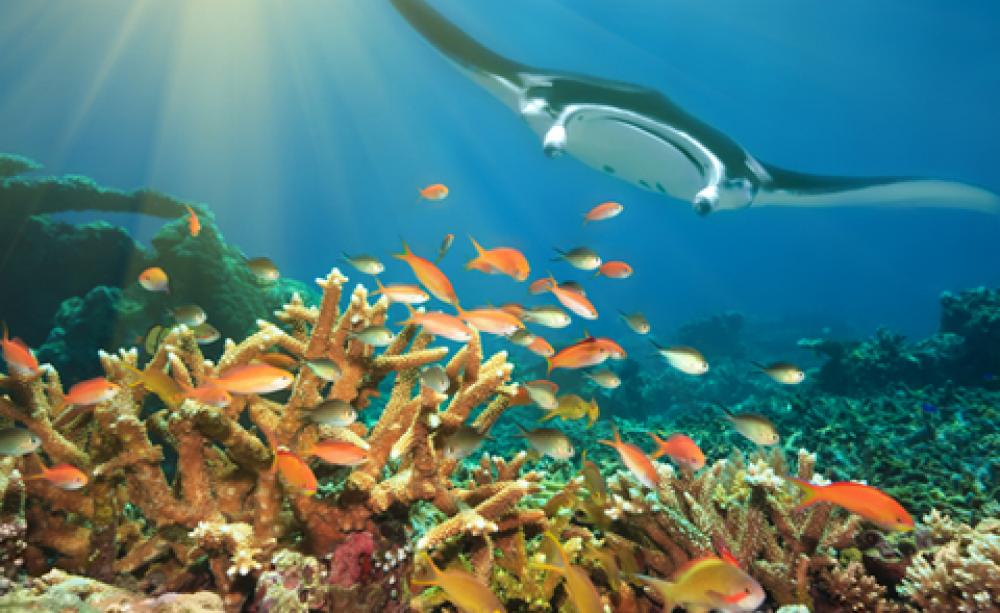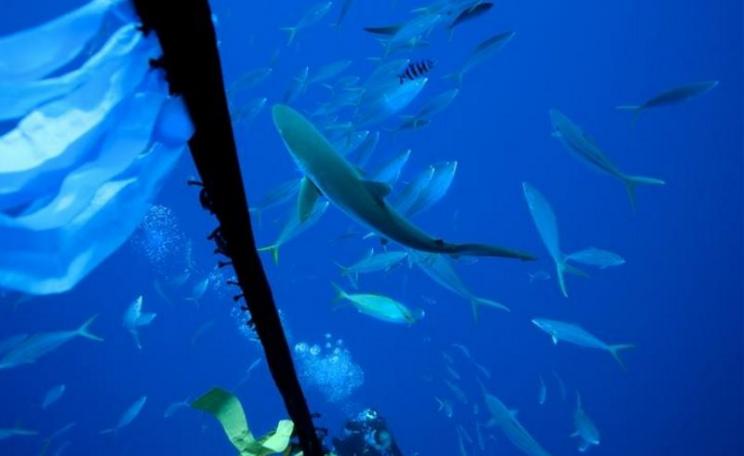The importance of marine life cannot be underestimated, and we must act quickly
I recently reported on the threats facing common and widespread species that are affected by global warming - those species had rarely been studied in relation to climate change before. Now, a new study has also revealed the threat of rising temperatures to an additional group of species that is not often discussed in the scientific literature or in the media - marine life.
Despite covering 71% of the Earth's surface, our knowledge of the effects of climate change in oceans is limited compared to terrestrial ecosystems. A worldwide team of scientists from Australia, UK, USA, Canada, Europe and South Africa, set out to redress this, and recently published their findings in the journal Nature Climate Change. Previous studies that have examined the response of marine species have only looked at specific locations or taxonomic groups, but the team were able to use these studies in order to examine the responses from a large number of marine species across the globe.
They assembled a database of 1,735 marine biological responses from the peer-reviewed scientific literature (consisting of 208 studies from 857 species) where regional or global climate change was considered to be the main cause. The data, from species in every ocean with observations lasting on average 40 years, was analysed to estimate changes in distribution and phenology (the timing of behaviour such as breeding) among taxonomic or functional groups.
In total, 83% of changes that have been observed in the world's oceans were in the direction expected under climate change. For all groups of species, for all biomes and for all response types, the proportions of observations consistent with climate change were significantly greater than 50%. The authors note: "Global responses of marine species revealed here demonstrate a strong fingerprint of anthropogenic climate change on marine life."
How did they know that climate change was causing these responses? Dr Elvira Poloczanska, lead author of the study, explains: "The fact that we find global coherence in responses, over the same time period that warming temperatures have been linked unequivocally to rising greenhouse gases, provides strong evidence of climate change as a driver of the changes."
The importance of marine life cannot be underestimated, and we must act quickly
The changes in geographic distribution were rapid. The mean rate of expansion at the leading edge ranges for marine species was 72km (44 miles), much faster than rates reported for predominantly terrestrial species, which is just 6.1km (3 miles). "We were surprised at the results. We hadn't expected such fast responses in distributions in the oceans. And we found more evidence than we expected, we found evidence of climate change responses from every ocean," says Dr Poloczanska.
The fastest leading-edge expansions were found in highly mobile pelagic organisms, such as phytoplankton, bony fish and invertebrate zooplankton. Dr Poloczanska continues: "Many marine species have eggs or larval stages that float, so can be dispersed rapidly, and over large distances, by ocean currents. Phytoplankton, marine primary producers at the base of many ocean food webs, tend to have very short generation times (hours to weeks) so populations can respond very quickly to changing environmental conditions."
Changes in phenology were also recorded, again at much faster rates than on land. In the ocean spring phenology has advanced by 4.4 days. In terrestrial species, spring phenology is estimated to have changed by between 2.3 and 2.8 days. Once again, fastest spring advancement was found in pelagic species - for phytoplankton the rate is 6.3 days, invertebrate zooplankton is 11.6 days, and bony fish is 11.2 days.
That these shifts in the ocean are on a scale greater than those observed on land may come as a shock. Our oceans have absorbed more than 80% of the temperature rise caused by climate change, yet surface waters are warming three times slower than air temperatures over land. This had led many to believe that marine life was perhaps buffered from the impacts of climate change. This study, revealing the magnitude of the responses of many species across the world, proves otherwise.
These changes will have consequences for marine ecosystems and for humans. We depend on marine life for food, oxygen and recreation. The importance of marine life cannot be underestimated, and we must act quickly. "We should be doing two things to lessen the impacts of climate change in the ocean. First, we need to reduce greenhouse gases in the atmosphere. Second, we need to prepare for inevitable change, even if all greenhouse gas emissions stopped tomorrow we are committed to a period of climate change. By anticipating impacts on ecosystems and societies, we can prepare adaptation plans to reduce the impacts, and even take advantage of any opportunities (although there will be thresholds for adaptation). Preparing now will be cheaper in the long run, than responding to changes when they happen," said Dr Poloczanska.
The findings from this study will form part of the Intergovernmental Panel for Climate Change (IPCC) Fifth Assessment Report for the United Nations, due to be published next year. It will be a welcome addition, because in the last IPCC report, published in 2007, less than 1% of the information on the effects of climate change on natural systems came from the ocean.
Dr Poloczanska surmises: "This study warns us that we shouldn't be complacent about the impacts of climate change on the oceans, despite slower ocean warming compared to land. We need to prepare for climate change responses in the ocean as well as on land."
Anna taylor is a freelance conservation journalist, and chief blogger for http://conservation-jobs.co.uk
http://www.annataylorfreelancewriter.webs.com/
Image courtesy of www.shutterstock.com
| READ MORE... | |
 |
SPECIAL CONTENT Project Ocean: Supporting parks for sharks Fiona Llewellyn reports on a collaborative marine conservation initiative that aims to tap into people's fascination with sharks...... |
 |
NEWS ANALYSIS Rubber stamping the destruction of the Great Barrier Reef Jonathan Meddings tells the Ecologist why he is outraged that Australia's Environment Minister has given his backing to a project that could spell disaster for the Great Barrier Reef and its marine inhabitants...... |
 |
NEWS ANALYSIS Marine pollution incidents kill thousands of seabirds – and it could be legal! Between 29 January and 6 February 2013, more than 500 seabirds, mainly guillemots, were killed or rendered helpless by a mystery substance from a pollution event off the south coast of England. |
 |
SPECIAL CONTENT EFU Film: The Greed of Feed – the hidden cost of your cheap farmed salmon A major investigation by the Ecologist reveals a host of unreported environmental and social costs linked to the fishmeal production industry in Peru |
 |
NEWS ANALYSIS Do protected areas for wildlife really work? Can national parks and marine protected areas safeguard endangered wildlife against the growing pressures of population growth and climate change? |








